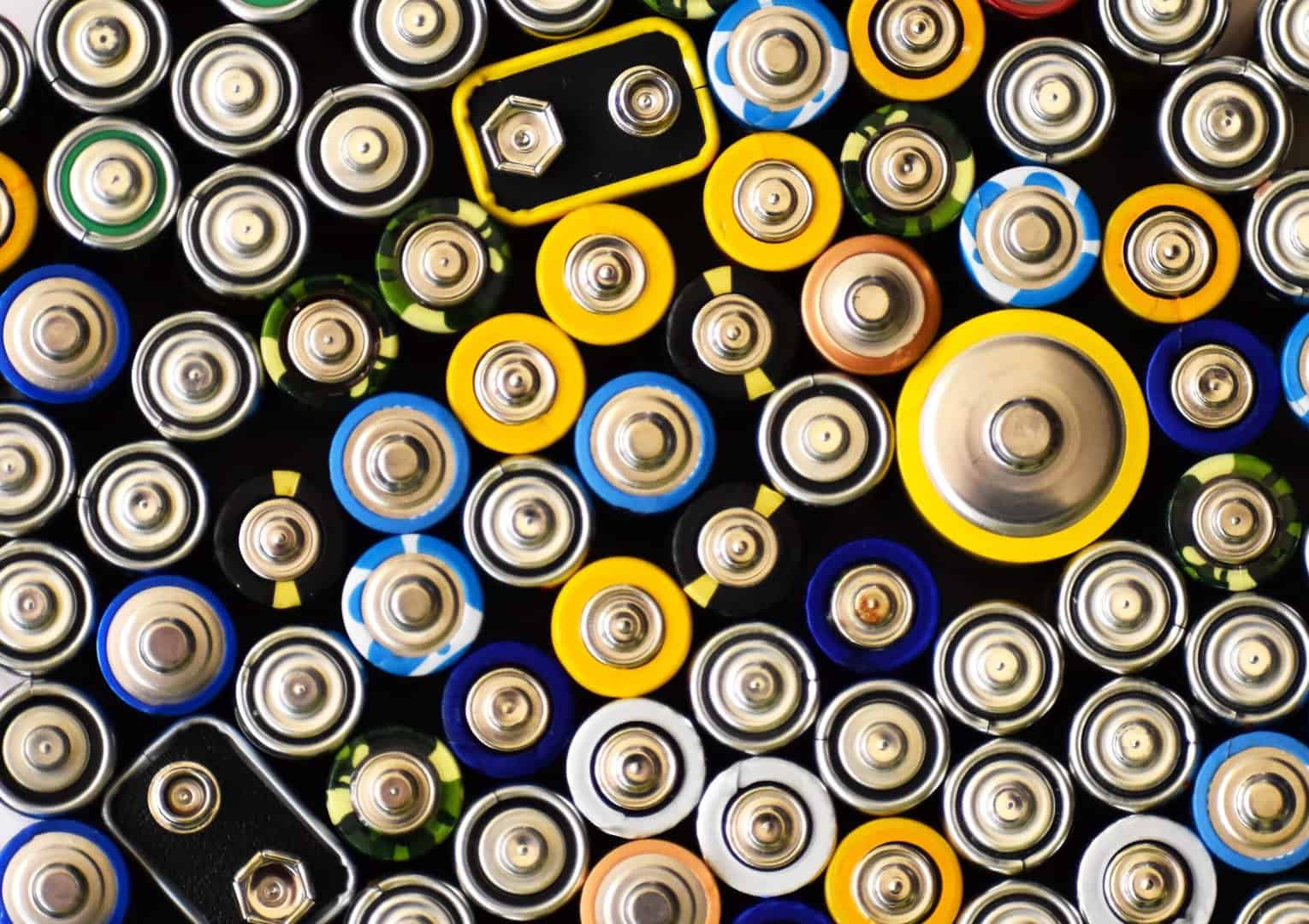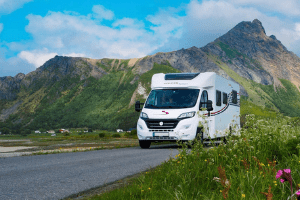Lithium-ion batteries are used in many of our day-to-day devices such as mobile phones, tablets, and laptops, and are even used in electrical objects like vapes, E-bikes, and some rechargeable backup solar generators.
Many electrical devices utilise these batteries because they are cost-effective to produce, lightweight, and designed to have a long lifespan. It’s crucial to handle these devices with care, particularly when storing them in confined spaces such as motorhomes or campervans. It’s essential to be aware that incorrect use, storage, or charging of devices can pose the risk of a fire or cause serious damage.
How can I stay safe when using electricals with lithium-ion batteries?
1) Check the condition of your battery
It’s important to regularly check the condition of your battery, and check for any signs of swelling, dents, overheating, or deformation. Upon inspecting your battery if you do find any damage, you should immediately stop using your device and look into taking the device to a tech professional.
However, with many devices now the battery is sealed within the device so it’s more difficult to check the condition of a battery. Fortunately, with many modern phones, laptops and other devices there is now a battery health option in the settings where you’re able to monitor the condition of your battery, some devices will even send you a notification or give a warning when they recommend you should have your battery serviced.
2) Use the correct charger
Always make sure to use the original charger that came with the product, in the event that you misplace the charger, or the charger is damaged, make sure that you’re purchasing a replacement charger from the supplier (or one that is recommended by the manufacturer.) Although third-party chargers may be available online, they often will have different voltages or are produced with different standards which could result in ineffective charging or risk damaging the battery.
3) Always buy replacement batteries from a reputable manufacturer or supplier
Similar to chargers, if you need to replace your battery it is crucial to make sure you purchase from the original manufacturer, or a reputable recommended supplier to ensure that the battery is suitable for use in your device.
4) Don’t continuously charge your device
In order to extend the lifespan of your battery, it’s important not to leave electrical devices charging continuously, especially overnight. When a device is fully charged it’s a good rule of thumb to unplug the charger.
5) Charge and store devices in a safe place
Making sure electronics are charged and stored in the appropriate place is a critical aspect of electric safety. When charging your device, be sure that the battery is not covered. It’s surprising how many people sleep with phones or other electrical devices under their pillows unaware of how extremely risky and dangerous this can be.
When it comes to storing and charging electronic devices, it’s crucial to consider both light and temperature regulation. Avoid exposing your device to direct sunlight or high temperatures. Also, refrain from storing devices in extremely cold environments as lithium batteries will cease to function in temperatures around 0° and below. The optimum temperature range for lithium-ion batteries is between 5°C and 20°C. Finally, a perhaps obvious but crucial reminder to keep electronics in dry environments – dampness, moisture and wetness can cause damage to your device.
6) Ensure there are safety systems in place
In the event of a worst-case scenario, always ensure that your smoke alarms are operational and functioning, and any fire extinguishers you have are in good working condition (remember fire extinguishers expire so check how long you’ve had fire extinguishers for and whether you need to replace them.) For more information on fire extinguishers and additional fire safety tips, check out our blog here. – https://www.comfort-insurance.co.uk/blog/motorhome-fire-safety-tips.
Understanding battery types: Lithium-ion (Li-ion) vs. lithium Iron Phosphate (LiFePO4)
Lithium is sometimes used in leisure batteries and generators; these batteries and generators are commonly used by people who do a lot of off-grid camping or who rely on solar power and work as backup generators. There is a key difference in the components of these batteries and generators compared to the other electric devices that we’ve discussed above; these batteries and generators are made from lithium iron phosphate (LiFePO4) instead of lithium-ion (Li-ion). Lithium iron phosphate (LiFePO4) is a safer composition compared to Lithium-ion which is a more flammable polymer that is more prone to combustion. So, if you’re in the market for a lithium leisure battery or a backup generator look for one that uses lithium iron phosphate (LiFePO4).
Disposal of lithium-ion batteries
It is crucial to dispose of lithium-ion batteries at the correct facilities. Incorrect disposal may result in the release of harmful chemicals into the environment. Additionally, the combustible materials in lithium-ion batteries are hazardous and can cause fires if not disposed of properly. Look up or look on your local authority’s website to find out designated collection points where you can dispose of batteries safely.
Get the right cover for your Motorhome or Campervan
Make sure your vehicle is covered in the event of fire or explosion. Get a quote for a fully comprehensive motorhome or campervan cover today!
£5000 personal effects cover
In the event of a fire or other damage to your vehicle, our policies underwritten by Aviva have personal effects covering up to £5000 (this covers the following items: clothing, bedding, pots and pans, and general camping equipment) so your essentials are covered!
For the full details on our Motorhome and Campervan policies visit www.comfort-insurance.co.uk or give us a call on 0208 984 0777, a member of our friendly team will be happy to answer any questions you have or run through a quote!







